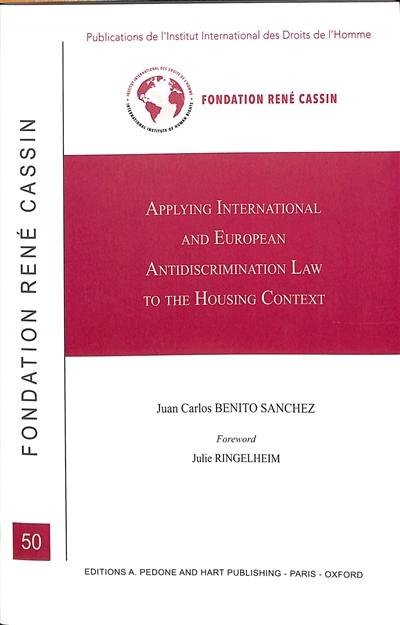
Fiche technique
Format : Broché
Nb de pages : 250 pages
Poids : 400 g
Dimensions : 16cm X 24cm
ISBN : 978-2-233-01038-4
EAN : 9782233010384
Applying international and European antidiscrimination law to the housing context
Quatrième de couverture
The central argument of this book is that the application of antidiscrimination law to the field of housing complements and enriches a right to adequate housing approach in two ways : firstly, it helps to elaborate and expand the rationale and implications of certain components of the right to housing ; secondly, it allows us to address human rights concerns that cannot be adequately tackled through the right to housing alone. I reach this conclusion through an analysis of the conceptual and practical implications arising from the application of antidiscrimination norms to the housing context, with a focus on Europe.
An enquiry into the philosophical foundations of antidiscrimination law leads me to identify four aims that antidiscrimination norms ought to pursue : eliminating hostility, prejudice, and stigma ; respecting cultural diversity and avoiding misrecognition ; transforming existing structures ; and ensuring a fair distribution of important goods in society. Applying this framework to the field of housing, I find that various antidiscrimination legal concepts can be mobilised to achieve those four aims, among which direct and indirect discrimination, discriminatory harassment, and reasonable accommodation. I also defend the usefulness of incorporating and mobilising socioeconomic disadvantage as a prohibited ground of discrimination to this end.
I then build on two case studies-housing segregation, on the one hand ; housing commodification and financialisation, on the other hand-to further demonstrate the contribution of antidiscrimination law to specific housing issues. Finally, I propose several procedural and substantive avenues to achieve diversity-conscious, all-inclusive housing policies, looking in particular at equality duties and housing decommodification policies. The legal analysis developed throughout this book, based on a human rights law methodology, is enriched through references to political and legal philosophy and to urban sociology.





